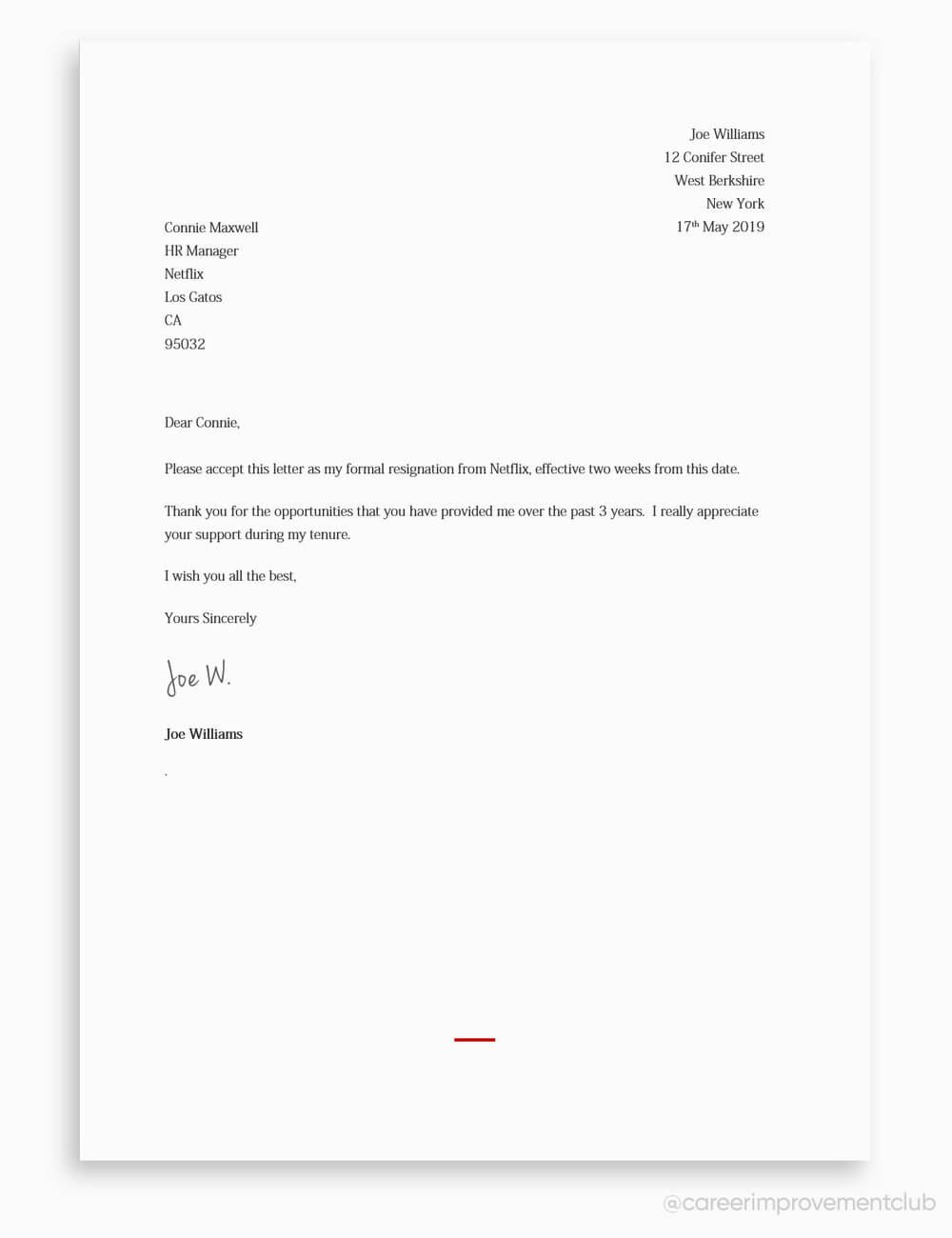Are you contemplating leaving your current job and need guidance on how to write a resignation letter? Look no further! Our ultimate guide is here to help you navigate this crucial step with ease. Crafting a well-written resignation letter is essential in maintaining a positive professional reputation and leaving on good terms. In this comprehensive blog, we will walk you through the entire process, from understanding the purpose and structure of a resignation letter to providing tips on expressing gratitude and maintaining professionalism. By the end of this guide, you’ll have all the tools you need to confidently write your resignation letter. Let’s get started!
Understanding the Purpose of a Resignation Letter
A resignation letter serves as a formal communication between an employee and their employer, informing the company of the employee’s decision to leave their current position. It is an essential document that helps maintain professionalism and ensures a smooth transition process. Understanding the purpose of a resignation letter is vital for both the employee and the employer.
- Formal notification: A resignation letter serves as a formal notification to the employer that an employee intends to leave their position. It provides a written record of the employee’s intention to resign, which is important for legal and administrative purposes.
- Professionalism: Writing a well-crafted resignation letter demonstrates professionalism and respect for the organization. It shows that the employee values their time with the company and wants to leave on good terms.
- Documentation: A resignation letter provides documentation of the employee’s departure date. This can be crucial for various reasons, such as finalizing employment contracts, calculating final pay, and updating company records.
- Transition planning: By submitting a resignation letter, employees give their employers sufficient time to plan for a smooth transition. This allows the company to start the hiring process, allocate resources, and ensure continuity of work without any disruptions.
- Positive impression: A well-written resignation letter can leave a positive impression on the employer. It reflects the employee’s professionalism, gratitude for the opportunities provided, and willingness to assist in the transition process if necessary.
- Legal protection: In some cases, a resignation letter may serve as legal protection for both parties. It clearly establishes the employee’s voluntary decision to leave, protecting them from potential disputes or misunderstandings that may arise in the future.
- Networking and references: A resignation letter can help maintain positive relationships with colleagues and superiors. By expressing gratitude and leaving on good terms, employees increase their chances of receiving positive references and maintaining valuable professional connections.
Preparing to Write Your Resignation Letter
Preparing to write your resignation letter is an important step when you have decided to leave your current job. It is a formal document that officially communicates your intention to resign from your position. Taking the time to carefully prepare and craft your resignation letter can help ensure a smooth transition and maintain professional relationships.
Here are some steps to help you prepare for writing your resignation letter:
- Reflect on your decision: Before starting to write your resignation letter, take some time to reflect on your decision to resign. Consider your reasons for leaving and ensure that you have thought through the implications of your decision.
- Review your employment contract: Familiarize yourself with the terms and conditions of your employment contract, especially regarding notice periods and any specific requirements for resigning.
- Choose the right timing: Timing is crucial when resigning from a job. Consider the needs of your employer and the impact your departure may have on your team or projects. It is generally advisable to provide at least two weeks’ notice, but this may vary depending on your role and industry norms.
- Plan a conversation with your supervisor: Before submitting your resignation letter, it is a good idea to have a conversation with your supervisor or manager. This will allow you to discuss your decision in person and provide an opportunity for any questions or concerns to be addressed.
- Keep it professional: When writing your resignation letter, maintain a professional tone throughout. Express gratitude for the opportunities you have had and briefly explain your reasons for leaving. Avoid negative or critical comments about the company or colleagues.
- Keep it concise: Your resignation letter should be concise and to the point. Include essential information such as your intended last day of work and any necessary details about the transition process.
- Proofread and edit: Before finalizing your resignation letter, ensure that it is free from any grammatical or spelling errors. Take the time to read it carefully and make any necessary edits.
- Submit your resignation letter: Once you are satisfied with your resignation letter, submit it according to the requirements outlined in your employment contract. Provide a copy to your supervisor and any other relevant parties.
Structure and Format
A resignation letter is a formal document that an employee submits to their employer when they decide to leave their job. It is essential to follow a specific structure and format when writing a resignation letter to ensure clarity and professionalism. Here are some key points to consider:
- Salutation: Begin the letter by addressing it to your immediate supervisor or the appropriate person in the organization.
- Opening paragraph: State your intention clearly and concisely. Mention that you are resigning from your current position and provide the effective date of your resignation.
- Body paragraphs: Use the body of the letter to express your gratitude towards the company, colleagues, and opportunities you have had during your tenure. You can also include any specific achievements or highlights of your time with the organization.
- Reason for resignation (optional): If you feel comfortable, you can briefly mention the reason for your departure. However, it is not mandatory to provide this information.
- Transition assistance: Offer assistance in transitioning your responsibilities to another employee during the notice period. This shows professionalism and willingness to help the company during the transition period.
- Closing paragraph: Conclude the letter on a positive note by expressing your best wishes for the company’s future success. You can mention your readiness to assist with any necessary paperwork or formalities related to your departure.
- Signature: End the letter by signing your name and providing your contact information. This includes your phone number and email address so that the employer can get in touch with you if needed.
- Date: Include the date of writing the letter below your signature.
Writing the Content of Your Resignation Letter
Writing the content of your resignation letter is an essential task when you have decided to leave your current job. It is a formal document that communicates your intention to resign from your position and provides necessary details to your employer. Here are some key points to consider when crafting the content of your resignation letter:
- Begin with a professional salutation, addressing your immediate supervisor or the appropriate person in the organization.
- Clearly state your intention to resign, mentioning the specific date of your last working day. This allows your employer to plan for a smooth transition.
- Express gratitude towards your employer for the opportunities and experiences gained while working with the company.
- Briefly explain the reason for your resignation, maintaining a positive tone and avoiding any negative remarks about the company or colleagues.
- Offer assistance in the transition process, such as training your replacement or providing necessary information to ensure a seamless handover.
- Conclude the letter with a polite closing, expressing well wishes for the future success of the company.
- Use a professional tone throughout the letter, keeping it concise and to the point.
Proofreading and Editing
Proofreading and editing your resignation letter is a crucial step before submitting it to your employer. A well-written and error-free letter not only reflects your professionalism but also ensures that your message is conveyed accurately. Here are some important points to consider when proofreading and editing your resignation letter:
- Check for grammatical and spelling errors: Carefully review your letter for any typos, grammar mistakes, or spelling errors. These errors can undermine the credibility of your letter and may create a negative impression.
- Verify the accuracy of information: Make sure that all the dates, names, and details mentioned in your letter are correct. Double-check important information such as your last working day and contact details.
- Ensure clarity and coherence: Read through your letter to ensure that your thoughts are expressed clearly and concisely. Check for any sentences or paragraphs that may be confusing or ambiguous, and revise them accordingly.
- Maintain a professional tone: Resignation letters should maintain a respectful and professional tone throughout. Avoid using emotional or negative language, and focus on expressing gratitude for the opportunities you had with the company.
- Consider the format and structure: Pay attention to the overall format and structure of your letter. Use appropriate headings, paragraphs, and bullet points to organize your thoughts effectively.
- Seek feedback: Consider asking a trusted colleague or friend to review your resignation letter. They may provide valuable feedback and catch any errors or areas that need improvement.
Submitting Your Resignation Letter
- Discuss the appropriate methods of delivering your resignation letter, whether in person, via email, or through traditional mail.
- Provide guidance on choosing the right timing to submit the letter.
- Emphasize the importance of maintaining professionalism throughout the resignation process.
Why you need to exit properly from your current employer?
In Industries such as Jewelry, Precious Metals, Retail or other non IT sector, many employees do not follow the HR process and procedure. Due to lack of guidance, they randomly quite the job without proper resignation process. When you search for next job, it is very important to have all the documents from your past employer must be available. Most of the companies these days do a thorough employee background check before they decide to hire. This is applicable for both blue collar, grey and white collar professionals.
Conclusion
- Recap the key points covered in the guide.
- Encourage readers to take action and apply the tips provided in their own resignation letter writing process.
- Remind readers of the positive impact a well-written resignation letter can have on their professional reputation.
By following this ultimate guide on how to write a resignation letter, you will be equipped with the knowledge and guidance needed to craft a thoughtful and professional letter when resigning from your job. Remember, a well-written resignation letter not only shows respect to your employer but also helps you leave on good terms and maintain positive relationships.






